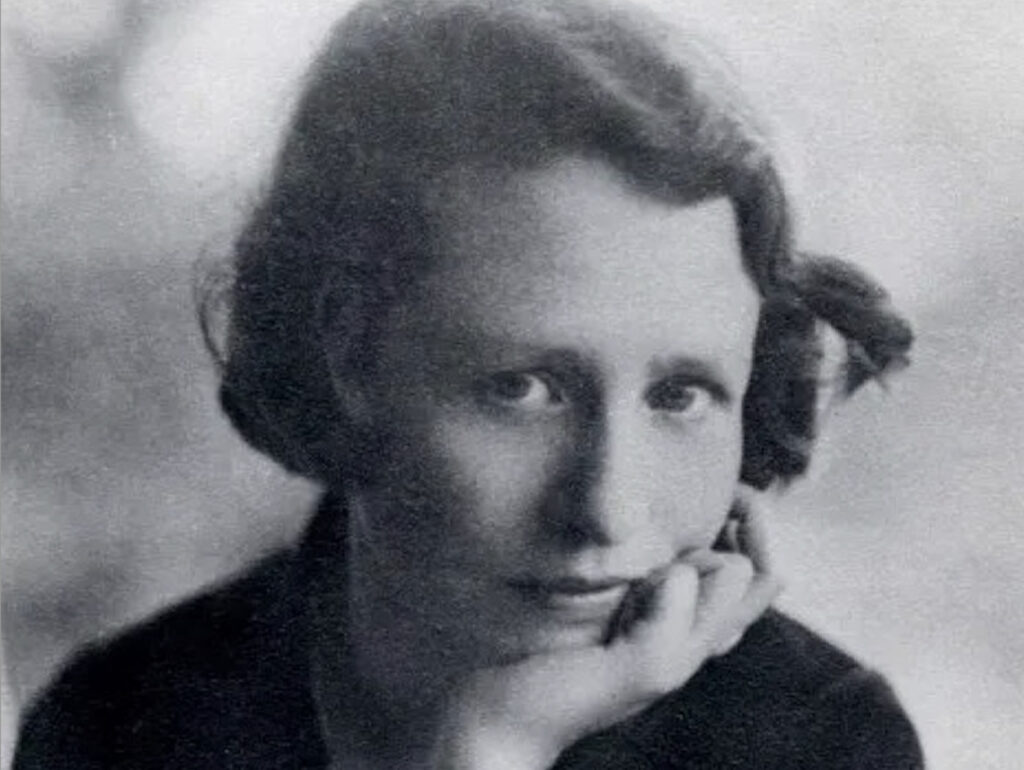Celebrating the bi genius of poet Edna St. Vincent Millay
Did you know that in 1923 Edna St. Vincent Millay won the Pulitzer Prize for Poetry? In fact, 100 years ago a lot was happening for the celebrated bisexual, polyamorous wordsmith.
The year was 1923. Sexual fluidity, flappers, Prohibition was revoked in New York and the Crash that led to the Great Depression was still six years away. With mass media still in its infancy, and mass produced printed material the main way people received their entertainment, poetry and romance novels experienced a golden age, especially for women.
A lyrical poet and playwright, Millay was also a famous social figure and high profile champion of women’s rights, making her a type of queer celebrity of her time: New York City and state during the Roaring Twenties.
Millay won the 1923 Pulitzer Prize for Poetry for her poem “Ballad of the Harp-Weaver,” part of her fourth volume of poems, The Harp-Weaver and Other Poems, published the previous year. This made her the first woman and second person to win the award. Combining elements of lyric poets Emily Dickinson and Sappho, Millay had her own bold, crystalline voice, drawing on images and symbols from nature to craft metaphors for human needs and concerns, including her own.

Feast
I drank at every vine.
The last was like the first.
I came upon no wine
So wonderful as thirst.
I gnawed at every root.
I ate of every plant.
I came upon no fruit
So wonderful as want.
Feed the grape and bean
To the vintner and monger;
I will lie down lean
With my thirst and my hunger.
While a student at Vassar, in a love letter written to one of her female lovers, the actress Edith Wynne Matthison, Millay referred to her “proud surrender” to the older woman.
In 1923 Millay married Eugen Jan Boissevain, a handsome Dutch importer and older man, while also having other female and male lovers, including critic Edmund Wilson. The marriage, wrote Wilson, was Millay’s retreat from “breaking hearts and spreading havoc” but it was in fact agreeably open and Millay’s husband also pursued affairs of his own. Millay’s fluid and complex love life with both genders nevertheless inspired her love sonnets. “I, Being Born a Woman” and What Lips My Lips Have Kissed.”
Whether humans, in all their variety, distracted, delighted or disappointed Millay, she returned again and again to her one true love — nature — which was large and various enough to contain her endless hunger for beauty and expressivity.
Born and raided in Maine by a divorcee mother who encouraged her daughter’s writing ability, Millay died in Austerlitz, New York aged 56 in 1950. She won the Robert Frost Medal in 1943, 20 years after her Pulitzer win, capping off a lifetime of poetic achievement. After her death, The New York Times described her as “an idol of the younger generation during the glorious early days of Greenwich Village”—referring in part to Millay’s early claim that women should choose their own approach to marriage, fidelity, and sexual pleasure.
Millay was popular with the reading public and critics and fellow poets, especially during the Jazz Age and while her work faded into obscurity as male-driven modernism took hold in the literary world, it received renewed attention again in the feminist literary revision of the 1960s and ’70s.






